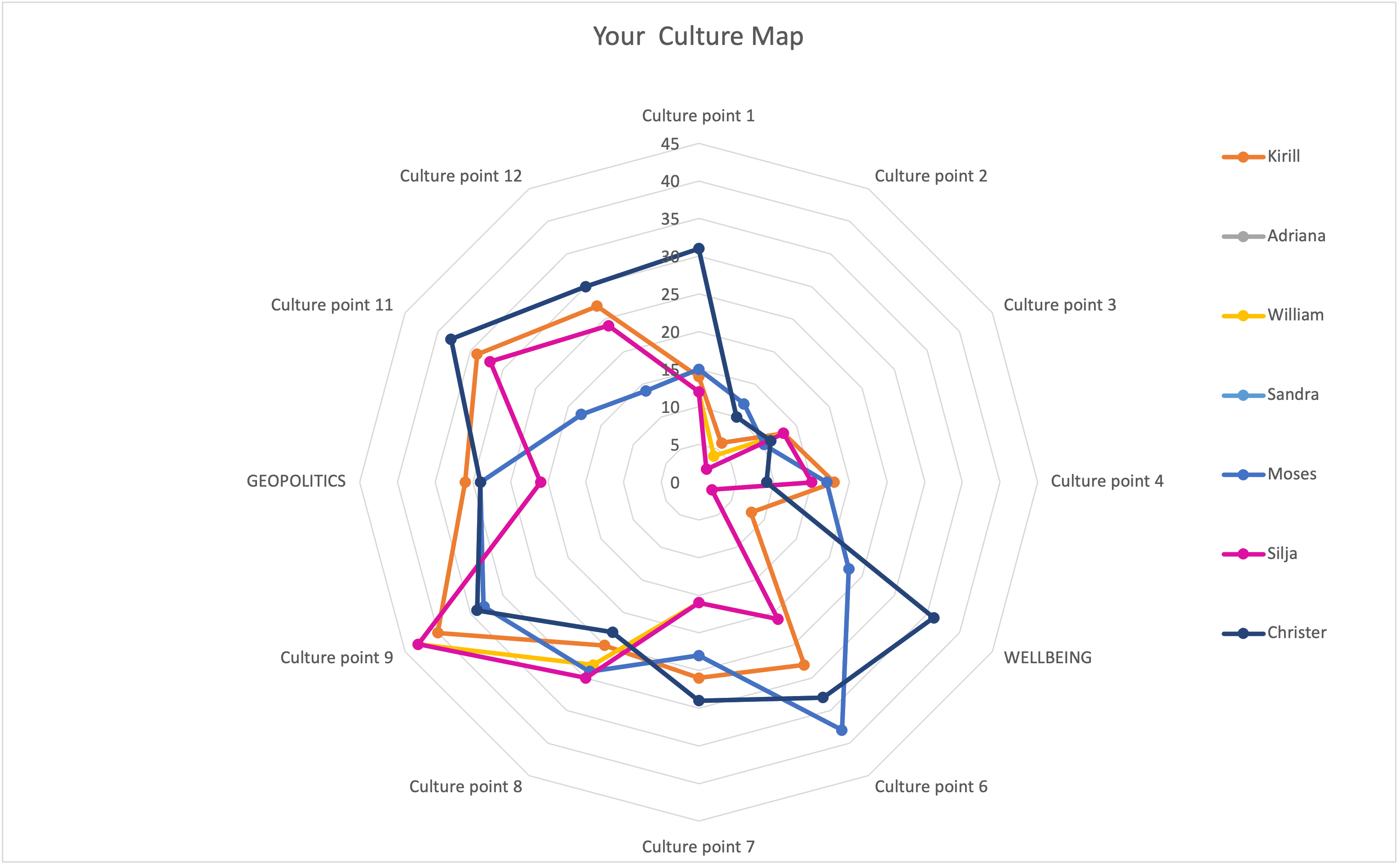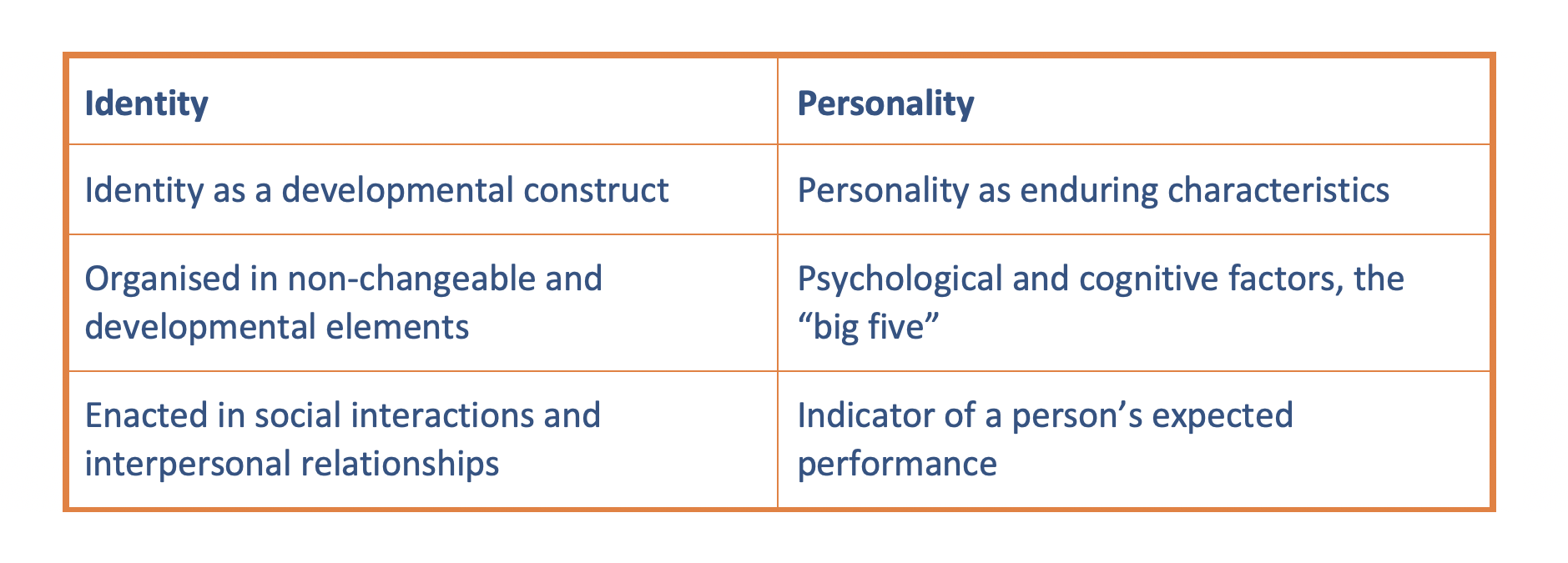Imagine your remote team collaborates with ease and joy. Your business processes are fully digitalised. Your asynchronous work processes are smooth and effective. Back to reality, low engagement and poor collaboration in remote working negatively affect performance and innovation. As the once-popular personality-based approaches to people development no longer do the trick, leaders seek innovative and scalable people development solutions. Behaviour-centric identity approaches meet the needs of the new way of working. The outcomes directly translate to newly designed cultural practices and remote-friendly processes.

Remote work has been in place for decades. Amidst the seemingly relentless calls to return to the office, many leaders have embraced the benefits of remote working. However, in the transition to remote-first, new challenges are ahead.
Leaders struggle with employees' reduced engagement and collaboration, which in turn
In an unprecedented difficult economic situation, people's engagement and collaboration in remote work are vital for organisations to innovate and, as a result, to prosper. At the same time, leaders have been thrown into the fact that work now happens remotely with no or insufficient training and development. In addition, once successful approaches in people development no longer do the trick.
People enjoy remote work. They train and develop themselves to become remote workers to live the 'work from anywhere' lifestyle. Team members are spread across time zones, bring cultural diversity, are often up to speed with the latest remote tools, and understand this multiplicity as an advantage.
These skills and capabilities trigger new standards for remote leadership. At the same time, leaders rarely have access to adequate training and development essential for successful remote leadership.
Let's use the example of asynchronous working. Leaders often list asynchronous working as one of their top struggles. They feel that asynchronous working is detrimental to engagement and collaboration. However, asynchronous working maximises outputs by decoupling work from synchronous communication. It doesn't require employees to be online simultaneously and relies heavily on documentation and transparency.
Clearly defined processes and inclusive, trust-based workplace culture are critical to making asynchronous working a success.
Trust is the glue that makes remote work successful. It's the foundation for fruitful engagement and collaboration, which in turn helps establish the clearly defined processes needed for asynchronous working.
Trusting work relationships are the basis for defining the processes for asynchronous working in co-creation. Only when people have a say in the design of these processes do they feel accountable for them. Successful leaders confirm that implementing measures to build trust through establishing meaningful relationships across cultural boundaries is most effective. It even allows allocating resources for well-being and mental health.

For success in leading across boundaries, business leaders need a modern, data-driven solution for people development that scales to team and organisation level.
People are unique, so are teams. Everyone should feel their ideas are given personal attention. People's unique identity complements the team and even fills gaps. For awareness and decision making, leaders and team members need access to real-time trends on what is essential for the team, defining how teams can best engage and succeed.
The sum of individual and team identities form company culture, which in turn
Remote workers look for employers who recognise their full diversity and potential where they can show their best selves. They prefer companies where they can continuously develop themselves. For remote-first success, companies must update the personality-based approaches, which were once effective in people and organisation development.
In brief, we need to move from personality to identity. The key differences between identity and personality are:

Personality approaches describe our enduring personal characteristics. Personality concepts based on the "Big five", such as the widely-known MBTI, assume that our personalities do not change over time. Personality approaches do not focus on the power of interaction between individuals, teams, and organisations, which is critical for effective collaboration and successful interaction. It denies people's capability for continuous development, which is detrimental in the age of lifelong learning.
Today's remote workers interact asynchronously in fast-shifting contexts. Talent is eager to learn and develop themselves; most importantly, they want to bring their whole selves. We believe that when people show their best, they can truly perform and deliver quality work. Culture needs to be a bottom-up approach, starting with authentic value drivers.
Our identity is at the heart of effective work-based relationships. In remote work, interaction is vital, and identity self-awareness is critical for engagement and successful collaboration. So, who are we in our interaction, and how do we build trust?
How people are perceived in remote work environments is critical for building trust. How people engage in remote meetings may differ from how they engage in in-person meetings. Their 'remote self' may differ from their 'in-person self'.
Cyberspace is a culture of its own: people behave differently. Evidently, on social media profiles, the use of an avatar, for example, can camouflage tangible elements such as gender or ethnicity. However, the relevance of these identity elements may converse in remote work. For example, how you express professionalism differs strongly: reliability, responsiveness, and keeping promises outweigh appearance as in dress code and style.
In response to leaders' need for a modern, data-driven solution for people development that scales to team and organisation level, we developed Vaeliou. Vaeliou is an online instrument that helps individuals and teams understand their identity map and its implications for relationship-building efforts in cross-boundary work.

It starts with the self-awareness of leaders and the key resources they bring to the remote table.
Based on your key strengths and your untapped resources, start building trust to
Ready to boost collaboration? Check out our plans or contact us.